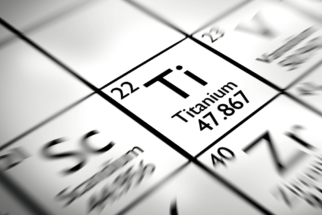
Is titanium a refractory metal?
There is no doubt you would’ve heard of the metal titanium at some point. It is used for many high performance products that need a durable material to ensure that they operate to the highest possible standards. Titanium is usually implemented to keep the user of a product safe, due to its tough, long lasting properties.
Tough and long lasting? Sounds an awful lot like refractory metals, right? There are common misconceptions when it comes to thinking whether titanium is a part of this group or not. This is why, at Special Metals, we have put together this blog post to give you the answers you’re looking for and to settle once and for all whether titanium is a refractory metal.
What is titanium?
Before looking at whether titanium is actually a refractory metal, it’s worth finding out a little more about the metal in question. This way, similarities and differences can be established between the two. Titanium is a metal that is familiar to people worldwide, and has many uses, namely in products that require a high level of durability and strength. It is most commonly used in mobile phones, protective sports equipment, jewellery and surgical equipment amongst others.
In order to be the most suitable material for said products, it must have properties that allows it to excel, right? Titanium benefits from being resistant to corrosion, that could weaken a metal that isn’t as strong as this. It also has an incredibly high melting point of 1,668°C, allowing it to withstand the hottest of temperatures without becoming susceptible to weakening and melting.
Is Titanium a refractory metal?
It’s with these characteristics in mind that many presume that titanium is a natural fit when it comes to being classed as one of the five refractory metals out there, but this is surprisingly not the case.
Of course, metals are never usually 100% pure, and can often include elements of other metals. This is evident in molybdenum (0.5% titanium) and niobium (1% titanium) for example.
Despite sharing many of the same properties and being present in other refractory metals, titanium is not listed as a refractory metal.
What about the other refractory metals out there?
Speaking of said metals, they share many of the aforementioned properties that make them such a reliable and durable material. These include a fantastic resistance to corrosion and melting points that are often unheard of outside of the sector!
Aside from the two refractory metals already mentioned, you can find three more materials that make up this group. These include:
Tungsten – Equipped with the highest melting points of all the refractory metals (3422°C), tungsten boasts extremely high strength and can be drawn into thin wires, making it a versatile option.
Tantalum – If you’re looking for a metal that provides excellent corrosion resistance against molten metals and liquids, then tantalum may be the most suitable option for you. It has high levels of conductivity, allowing it to thrive at the highest temperatures.
Rhenium – The last of the refractory metals, rhenium is another material that benefits from an exceptionally high melting point of 3,185°C. It is the most recently discovered refractory metal, but doesn’t compromise on quality, as it is used in the aerospace and manufacturing industry extensively.
Get in touch for more
Are you still stuck on how you can benefit from titanium? Or perhaps you would like to know more about zirconium? Regardless of your enquiries, our friendly team of experts are here to help. We can provide you with the assistance and answers you need to make an informed decision on your next move.
Request a quote on our array of metals or speak to our experts for more information. You can do so by giving us a call on +86-755-29936699 or by emailing inquiry.mp@professionalmanufacturing.com and we will get back to you as soon as possible.

Leave a response
Your email address will not be published. Please enter your name, email and a comment.